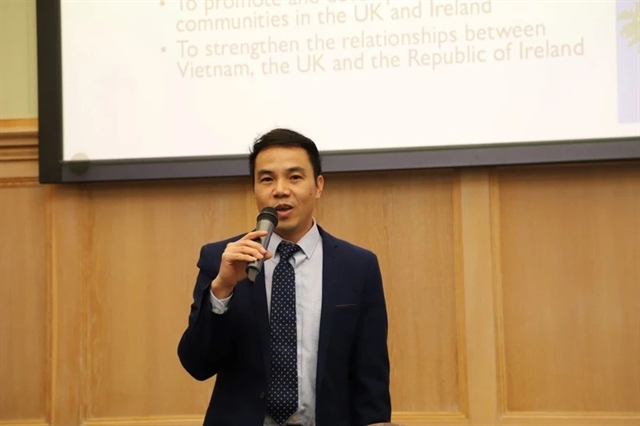 Society
Society

 |
| Professor Nguyễn Xuân Huấn. — VNA/VNS Photo |
The Politburo’s Resolution 57-NQ/TW, which aims to create breakthroughs in science, technology, innovation and national digital transformation, reflects the Government’s strong commitment to making technology a key driver of economic growth, said Professor Nguyễn Xuân Huấn, an expert in digital communications at Middlesex University (UK) and President of the Việt Nam Intellectual Society in the UK and Ireland, in a recent interview with the Vietnam News Agency in London.
Professor Huấn, who also serves as Director of the London Digital Twin Research Centre—one of the UK’s pioneering institutions in this emerging field—praised Resolution 57’s forward-thinking approach, particularly its stance on risk acceptance in scientific research. He noted the resolution’s provision exempting scientists from liability for economic losses incurred during scientific trials, saying it would help ease psychological pressure and allow researchers to focus more fully on innovation.
He also welcomed reforms aimed at cutting red tape, improving financial management mechanisms, and granting greater autonomy in the use of research and development funds, calling these steps vital to accelerating innovation.
Assessing the resolution’s objectives, Huấn acknowledged that Việt Nam’s ambition to become a regional leader in AI and digital technology within five years is bold. However, he underlined the importance of setting high targets, embracing risk, and ensuring unity in implementation.
Highlighting potential growth areas, he pointed to Việt Nam’s strengths in fundamental science and informatics. Beyond AI and semiconductors, he suggested the country could make notable progress in emerging fields such as quantum computing, where its research capacity is well aligned. He also identified medicine and renewable energy as sectors with high potential, provided they receive targeted strategic investment.
Sharing lessons from the UK, Huấn said the British Government allocated substantial funding to scientific research each year, with a strong focus on commercial applications. To bridge academia and industry, UK policies directed funding to collaborative research projects that include business partners, allowing enterprises to co-finance studies and apply research outcomes in practice.
For Việt Nam, he recommended introducing clear policies to incentivise university-business collaboration for the commercialisation of research, along with mechanisms to encourage capable private enterprises to participate in scientific projects. These enterprises, he said, could play a key role in advancing technology, innovation and digital transformation. In the UK, all qualified enterprises—public or private—could access research funding, he added.
On human capital development, developed countries often have lower enrolment in technical fields compared to Việt Nam. He suggested leveraging this advantage by investing in a high-tech workforce to enhance the country’s global competitiveness over the next 10 to 20 years.
Regarding the involvement of overseas Vietnamese experts, Huấn said the diaspora remained eager to contribute to national development, but emphasised the need for clear incentives and streamlined procedures to enable their participation.
To maximise contributions, he proposed appointing expatriate scholars as visiting professors, involving them in advisory roles on key projects, and mobilising global Vietnamese intellectual networks to support international collaboration in science, technology and digital transformation. — VNS




